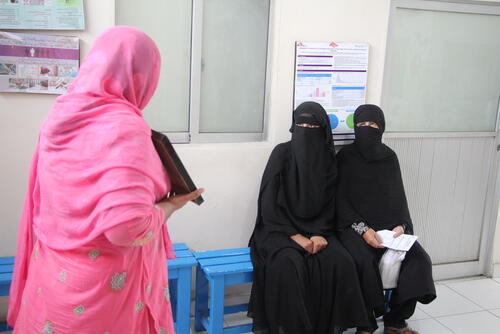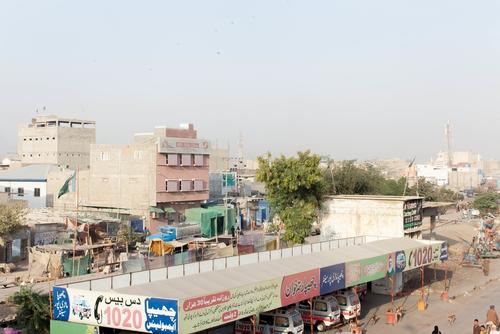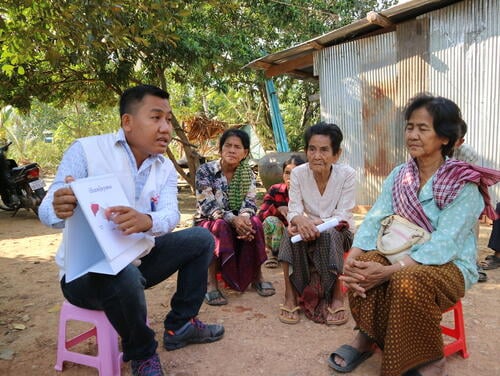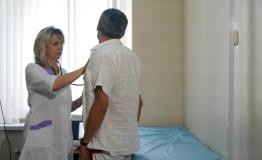Turn off the busy Maripur road and cross the railway line, water buffalos grazing to your right, tuk-tuks and brightly-painted trucks parked haphazardly on the verge to your left, and you’ll enter one of the main thoroughfares of Machar Colony in Karachi, Pakistan.
Sprawling over an area of almost 300km2, it is an unofficial settlement, home to around 150,000 people. Many who live here have no official papers, residents don’t have access to regular refuse collection, and there is no sewage system beyond drainage channels clogged with rubbish. Safe water is hard to come by.
Down one of the alleys, opposite a small grocer’s shop, is the Médecins Sans Frontières (MSF) clinic, offering diagnosis and treatment for hepatitis C.
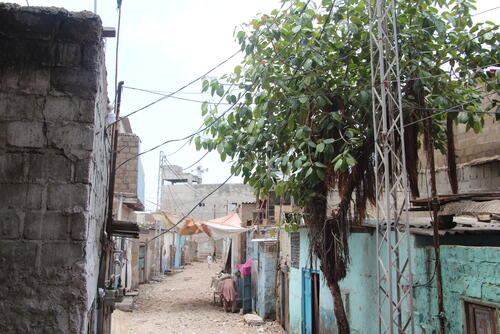
This liver disease is caused by the hepatitis C virus and is the major cause of liver cancer. According to the World Health Organization, Pakistan has the second highest number of people infected with the virus in the world, and it can cause both acute and chronic hepatitis C infection.
It is transmitted through blood, and so the re-use of needles and razor blades, unsafe healthcare practices, and sharing everyday household items such as combs or toothbrushes can spread the virus.
Casting the information net
Nestled against the sea and close to one of Karachi’s ports, many of the people who live in Machar work in the fishing industry. Some repair and build wooden boats for the fishermen who spend months at sea catching tuna or mackerel to bring back to sell.
Others work in the fisheries in and near the Colony, where they prepare the fish and shrimp to be sold to exporters. Blue nets dry in the sun, fish swing in the wind and men in white rubber boots hose down the fish auction house. In its bid to tackle hepatitis C in this community, MSF teams goes where the people are.
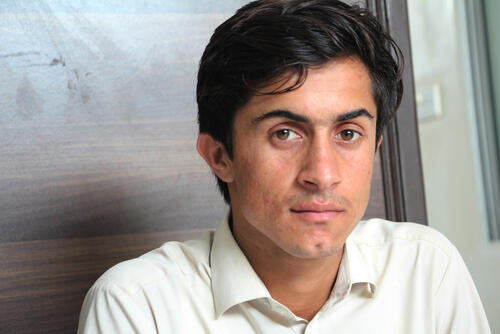
A local team of health promoters run information sessions about the virus, its symptoms and the ways it can spread, and organise hepatitis C screenings in the community. They visit schools and fish factories and bring together groups such as barbers and beauticians. As Tassawar Ali, an MSF Health Promotion Supervisor, explains:
“The greatest strength of this community is its level of active engagement and participation. Through this we are able to successfully screen the most vulnerable sections of Machar’s population.”
Tackling the virus
More than 95 per cent of people started on oral antiviral medication can be cured of hepatitis C, but currently access to diagnosis and treatment remains low in Pakistan.
The MSF clinic sees between 30 and 35 patients per day, some of whom come for the first time for diagnosis, others for their monthly follow-up. A combination treatment of Sofosbuvir and Daclatasvir pills is taken daily over the course of three months, and then it is a further three months before a blood test can confirm if patients are cured.
Most people can be treated in the clinic, but those with cirrhosis of the liver or complications are referred to a nearby hospital to be seen by a specialist gastroenterologist. In total since the project started in 2015, 2,159 patients have been cured of hepatitis C.

Over the coming months MSF plans to increase the number of patients the team is seeing in the clinic, the aim being to give more people access to diagnosis and treatment.
But work remains to be done on understanding reinfection and possible resistance patterns. If a person is cured of hepatitis C, that does not mean they cannot contract it again. That’s why it is so important that an infected person and their household start treatment at the same time. And that people understand the different ways the virus can spread.
Machar is just one small area of Karachi, which is just one city in all of Pakistan, but the hope is that treating hepatitis C in this way – in a clinic closer to the community and without the need for hospitals and specialists in most cases – can be replicated.



